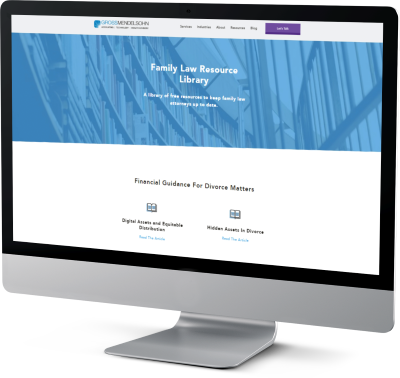Divorce is one of the most stressful events that people may encounter in their lifetime, even more so if there is significant hostility between the spouses.
As a result of the adversarial nature of divorce, the parties might behave irrationally or even vindictively, especially when it comes to their finances. There is the possibility that one or both spouses may not be entirely forthcoming or truthful about their financial situation during litigation.
During divorce settlements, common areas of concern are undisclosed assets or the understatement of income, but another potential fraud area that should be considered is the dissipation of marital assets.
Put simply, dissipation of assets commonly refers to a spouse frivolously spending or squandering assets in an attempt to reduce the marital property value, the value that will later be used to determine each spouse’s equitable distribution.
Asset dissipation isn’t always as simple as transferring money to a separate bank account. Certain schemes and transactions can be hard to identify, and, if left undiscovered, can lead to a disproportionate share of assets being distributed among the parties in the final settlement.
Red Flags to Look For
A spouse or attorney may have an indication that something is wrong with the family finances based on the history of the marriage, circumstances of the divorce, or actions of the other spouse. Beyond using intuition, there are some red flags that attorneys and their clients can look for:
-
Money spent on extramarital relationships
-
A spouse is secretive or controlling when it comes to the family’s finances
-
Significant cash withdrawals
-
Large “gifts” to friends or family
-
Expensive vacations or hobbies
-
Gambling
-
Unusual or unrecognizable transactions on credit card or bank account statements
-
Sale or destruction of marital property
-
Spending down cash balances in a business
What to Do About It
If one or more of these red flags is present, or if there is suspicion of wrongdoing, then a financial investigation should be considered.
A forensic accountant is an expert at evaluating suspected fraud schemes, and, by using a combination of accounting knowledge and investigative skills, can perform a detailed examination of the financial records to determine if any misconduct has occurred. A forensic accountant will present his or her findings to the client, attorney, and if necessary, the court, through a written report or testimony.
There are some factors to keep in mind when making a claim of dissipation of assets. First, the amount in dispute needs to be substantial enough to make a difference to the court when dividing the marital assets. Second, the spending needs to be frivolous and unusual, meaning it has no serious purpose and it started occurring once a separation was obvious among the parties. Therefore, an expensive hobby or poor spending habits that existed throughout the marriage would probably not meet the test for a fraudulent dissipation. Dissipation of assets can be difficult to prove, so it’s important to weigh the potential benefit against the cost of a forensic investigation.
The effects of uncovering dissipated assets, however, can be significant. In such cases, the court would most likely consider the foregone assets as if they still existed when dividing the marital property. Further, such evidence of misconduct, disparaging the reputation and credibility of the opposing spouse, could prove to be a valuable tool in negotiating a settlement, either in or out of court.
Need Help?
Our Forensic, Valuation & Litigation Support Group, which includes forensic accountants and Certified Fraud Examiners, can help identify hidden assets.
Contact us online or call 800.899.4623.
This article was originally published in February 2019 and was updated in April 2024.


